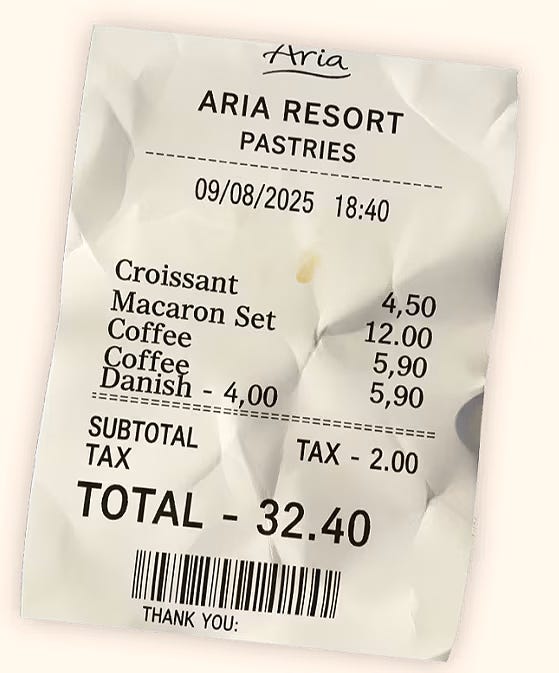Trump & Xi to Meet, Lula Hopeful of a US Trade Deal, Milei's Party Wins in Mid-terms, China's CCP Lays out Five-Year Plan Amid Spiralling Deflation, Cote D'Ivoire holds Presidential Election, and More
Grinfi Political Risk Intelligence Brief

Welcome to this week’s edition of Grinfi Political Risk Edge, your trusted source for expert political risk analysis and strategic intelligence. Thorough, insightful, and industry-focused. In this issue, we examine key geopolitical events shaping global markets and provide deep, beyond-the-headlines assessment. We deliver clarity in uncertainty and strength in decision-making. Anticipate, Adapt, and Excel!
But first, Grinfi’s Quarterly Market Risk Report for Q3 has been released. The report directly focuses on how global markets responded to political changes and vice versa, and models possible scenarios to expect in this final quarter (Q4). Read it here.
Now, let’s begin the week with a laugh 😄 to brighten the mood.
Help us serve you better and improve Grinfi Political Risk Edge by taking this brief, fully anonymized reader survey.
“A tyrant must put on the appearance of uncommon devotion to religion. Subjects are less apprehensive of illegal treatment from a ruler whom they consider god-fearing and pious.”
Aristotle. Politics. Translated by Benjamin Jowett. In The Works of Aristotle Translated into English, edited by J. A. Smith and W. D. Ross, Vol. 10. Oxford: Clarendon Press, 1905.
Disclaimer: The opinion expressed in this quote does not represent our views but is intended for reflection purposes only.
From Grinfi Political Risk Observatory (GPRO), here’s what we’re monitoring:
High Impact Situational Updates
EXECUTIVE SUMMARY
Last week, several strategic events reshaped the global risk environment with direct consequences for security, markets, and regulation.
“At Grinfi, we track immediate/direct fragility and systemic contagion (cascading effect), ensuring leaders see risks before they spread.”
Across the US and UK, new evidence shows that fraud-related activities leveraging generative AI, particularly deepfakes, identity theft, voice cloning, and synthetic identities, have dramatically increased. In the first half of 2025 alone, according to the UK Finance Fraud Report, the UK recorded total confirmed fraud losses of roughly £629 million, a 3% increase compared with the same period in 2024.
An Experian survey conducted earlier this year showed that over a third (35%) of UK businesses reported being targeted by AI-related fraud in the first quarter of 2025, compared to just 23% last year. In the US, the FBI issued a public warning in May that malicious actors are using AI-generated voice and text to impersonate senior officials, aiming to defraud individuals and institutions. Now, phishing, smishing, and vishing campaigns have become even harder to detect and more sophisticated, especially since the launch of GPT-5.
The infamous 2024 Arup deepfake case still serves as a proof of concept of AI-driven fraud. The UK engineering and design firm was defrauded after a finance employee in its Hong Kong office was tricked into transferring roughly $25 million (HK$ 200 million) to multiple accounts after a convincing deepfake video call featuring AI-generated “colleagues,” including what appeared to be the CFO. This remains one of the most sophisticated examples of corporate fraud ever recorded.
Now, a newer form of AI-enabled deception is emerging. According to a Financial Times investigation published last week, “internal expense fraud” has surged in the US and UK. Financial compliance software providers such as AppZen confirm that AI-generated fake receipts now account for roughly 14% of all fraudulent expense submissions, with nearly one-third of finance professionals in both countries reporting an increase in falsified documentation since the release of advanced image-generation models.
Surveys by Medius also show that a large proportion of finance officers suspect colleagues of submitting fraudulent receipts, while others admit to feeling pressured to approve questionable claims. Firms appear ill-equipped to detect realistic AI-generated documentation, creating a serious vulnerability for internal controls and fraud prevention.
This week, US tech giants are expected to report strong corporate earnings. Microsoft, Alphabet, Amazon, and Meta are projected to post robust revenue growth and earnings per share (EPS) despite macroeconomic and geopolitical headwinds driven by the US–China trade dispute and tariff escalation. However, investment banks, including Goldman Sachs, have warned of an asset bubble risk in the technology (mostly AI) sector, as market overconfidence in (i.e. valuation of ) tech stocks appears to have moved far ahead of their real economic value.
In the United States, concerns of market risk eased slightly after Treasury Secretary Scott Bessent confirmed a framework for a meeting between President Trump and President Xi Jinping on October 30 in South Korea, during the APEC summit. The framework, agreed after preparatory talks in Malaysia with Vice Premier He Lifeng, reportedly includes a US ownership plan for TikTok, multi-year Chinese soybean purchases, and a temporary suspension of China’s rare-earth licensing rules. The announcement followed Trump’s abrupt cancellation of trade talks with Canada and the imposition of a 10% tariff increase due to a controversial Ontario-funded advertisement that used Ronald Reagan’s 1987 speech criticizing protectionism.
The U.S President argued that Canada was playing ‘dirty’ to influence the Supreme Court case on tarriff currently being litigated. Ontario’s government has since paused the $75 million CAD campaign, allowing negotiations to resume.
The diplomatic spat has already affected Canadian policy. Ottawa is encouraging major pension funds to redirect investments inward (domestically) as their North American neighbor becomes more unreliable and hostile. Industry Minister Mélanie Joly urged Canada’s $3 trillion pension system to prioritize national projects to boost growth, as the Canada Pension Plan Investment Board (CPPIB) has moved to reassess or pause new investment in US private markets in order to reduce exposure to US’ increasingly belligerent geopolitical and regulatory climate. Prime Minister Mark Carney announced that he would meet
End of Free Briefing
Become a paid subscriber today to gain complete and unrestricted access to the full briefing with detailed strategic takeaways, sector-specific action roadmaps, board-ready guidance (“What to Tell Your Investors or Board this Week”), and our comprehensive market summary, as well as the exclusive France-special section: L’observatoire Decisif...






